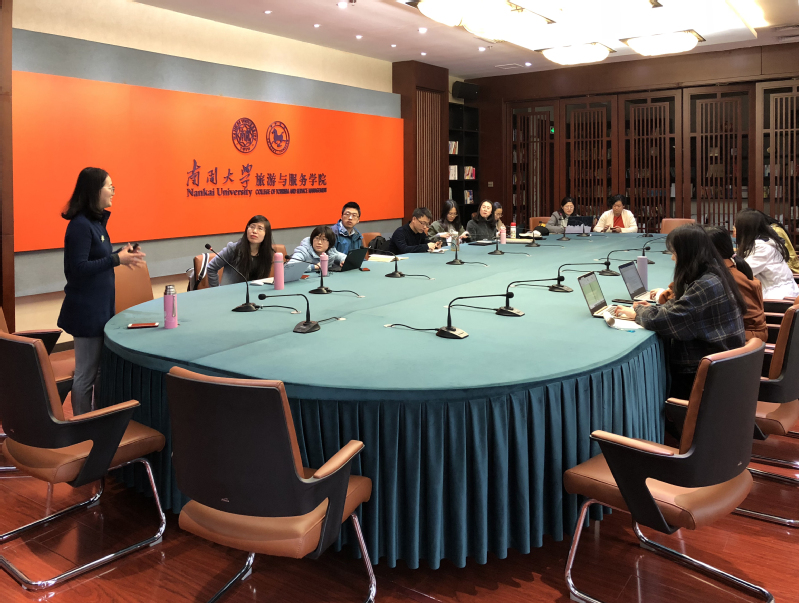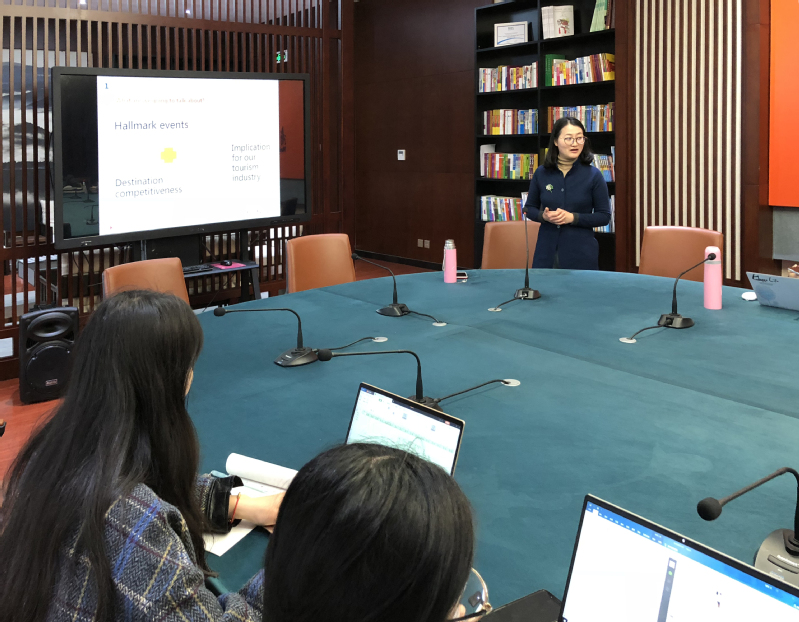On April 8, Associate Professor Wang Jingna gave a lecture entitled The Impact of Landmark Festival Events on the Competitiveness of Tourist Destinations - Inspiration Edinburgh International Art Festival Brought to Chinese Destination Cultural Tourism for the teachers and students in our College. Prof. Wang sorted out and discussed the development process and destination competitiveness of the festival events, and combined with the Edinburgh International Art Festival, she explored how a destination city can figure out the development direction of the cultural tourism festival events that fits itself based on the cultural characteristics and traditions of the region.

Prof.Wang first sorted out the development history and research process of festival events, and pointed out that the research on the theme of landmark festival events is currently quite rare in China; especially under the background where the festival events are still unfolding in China, there is a huge potential for the research in this field. The professor believed that the research on landmark events can be carried out from the aspects of economy, social culture, tourism, cities, residents’ well-being and so on. Landmark festival events are mainly organized to enhance the visibility, attractiveness and profitability of the destination, and the uniqueness and compatibility with the destination should be considered in the design of the event. In the summary and discussions of the study of destination competitiveness, Prof. Wang emphasized that the competitiveness of destinations is mainly reflected in providing tourists with unforgettable tourism experiences, improving tourism incomes, the quality of life and sustainable development of residents, and when studying the competitiveness of tourist destinations, you need to identify reference and comparison objects at the same level. As for the future research direction, Prof. Wang thinks it is necessary to review the perspective of supply and demand, expand the theoretical category, and introduce the predictive index into the evaluation model of tourism destination competitiveness.

Finally, taking Edinburgh International Art Festival as an example, Prof. Wang deeply analyzed the impact of landmark festival events on destination competitiveness and its inspiration to the development of Chinese cultural tourism. The participation of citizens and tourists is very important in the design of landmark events, and the design of events should reflect the local culture and its uniqueness so that the tourists will recognize the local culture, and at the same time, the implementation of the concept of sustainable development is also of great importance for the destination to obtain competitiveness.
In this lecture, the research course of festival events and tourism destination competitiveness was elaborated on, and by way of case study, in-depth discussion was carried out through which development direction and strategy for cultural tourism festival events were put forward.

